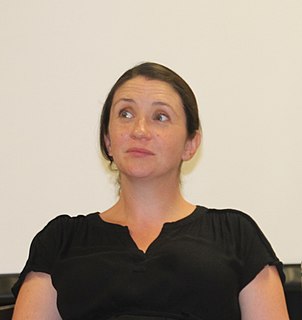A Quote by Caryl Phillips
A writer often wants to change a reader’s perception about the world, which is a political act. But we have to work through character, so helping the reader to feel close to fictional characters is the gate through which we have to usher the reader.
Related Quotes
We must be forewarned that only rarely does a text easily lend itself to the reader's curiosity... the reading of a text is a transaction between the reader and the text, which mediates the encounter between the reader and writer. It is a composition between the reader and the writer in which the reader "rewrites" the text making a determined effort not to betray the author's spirit.
The most difficult part of writing a book is not devising a plot which will captivate the reader. It's not developing characters the reader will have strong feelings for or against. It is not finding a setting which will take the reader to a place he or she as never been. It is not the research, whether in fiction or non-fiction. The most difficult task facing a writer is to find the voice in which to tell the story.
I think of myself primarily as a reader, then also a writer, but that's more or less irrelevant. I think I'm a good reader, I'm a good reader in many languages, especially in English, since poetry came to me through the English language, initially through my father's love of Swinburn, of Tennyson, and also of Keats, Shelley and so on - not through my native tongue, not through Spanish. It came to me as a kind of spell. I didn't understand it, but I felt it.
The first rule is you have to create a reality that makes the reader want to come back and see what happens next. The way I tried to do it, I'd create characters that the reader could instantly recognize, and hopefully bond with, and put them through situations that keep the reader on the edge of their seat.
In my couple of books, including Going Clear, the book about Scientology, I thought it seemed appropriate at the end of the book to help the reader frame things. Because we've gone through the history, and there's likely conflictual feelings in the reader's mind. The reader may not agree with me, but I don't try to influence the reader's judgment. I know everybody who picks this book up already has a decided opinion. But my goal is to open the reader's mind a little bit to alternative narratives.
Every reader, as he reads, is actually the reader of himself. The writer's work is only a kind of optical instrument he provides the reader so he can discern what he might never have seen in himself without this book. The reader's recognition in himself of what the book says is the proof of the book's truth.
It is easier for the reader to judge, by a thousand times, than for the writer to invent. The writer must summon his Idea out of nowhere, and his characters out of nothing, and catch words as they fly, and nail them to the page. The reader has something to go by and somewhere to start from, given to him freely and with great generosity by the writer. And still the reader feels free to find fault.
There's an old adage in writing: 'Don't tell, but show.' Writing is not psychology. We do not talk 'about' feelings. Instead the writer feels and through her words awakens those feelings in the reader. The writer takes the reader's hand and guides him through the valley of sorrow and joy without ever having to mention those words.
Simply put, meta-writing is writing that is self-conscious, self-reflective, and aware of itself as an artifice. The writer is aware she's writing, and she's aware there's a reader, which goes all the way back to Montaigne's often-used address "dear reader," or his brief introduction to Essais: "To the Reader." It can be done in a myriad of ways.
The devil's in the details. The way I view my job is to bring the reader into a world they otherwise could not enter and let them see it through the character's eyes. And you can only do that with detail. The details make the characters distinct from one another. If you can give them those little grace notes, those little touches, that's what makes the reader relate.






































